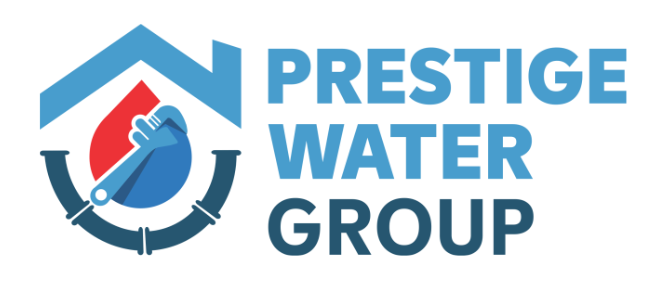
What Does a Plumbing Contractor Do?
Understanding the Role of a Plumbing Contractor
Plumbing contractors do more than just fix leaky faucets or unclog toilets, they’re licensed professionals trained to handle complex plumbing systems across residential, commercial, and industrial properties. Whether you’re dealing with new construction or a plumbing emergency, a licensed plumbing contractor ensures everything operates safely and in compliance with federal building codes.
From managing large-scale installations to troubleshooting gas connections, their responsibilities go far beyond the scope of a general plumber. But when exactly do you need one? And how do their qualifications differ from a journeyman plumber or handyman?
This guide covers everything you need to know, from responsibilities and licensing requirements to tips for hiring the right contractor for your next plumbing project.
What Is a Plumbing Contractor?
A plumbing contractor is a professional licensed to install, repair, and maintain plumbing systems, including those involving water supply lines, waste disposal systems, gas piping, and plumbing fixtures such as toilets, faucets, and water heaters. In most states, they must hold both a contractor license and a master plumber license to operate legally and independently.
Their work includes:
- Planning plumbing layouts for new construction
- Installing common plumbing fixtures like water heaters, garbage disposals, and sinks
- Ensuring plumbing work complies with building codes and ADA (Americans with Disabilities Act) requirements
- Overseeing septic systems, drainage systems, and gas line installations
In commercial settings, they may work alongside general contractors to coordinate broader construction efforts while handling the unique demands of commercial-grade plumbing systems.
Key Responsibilities of Plumbing Contractors
Plumbing contractors play a critical role in construction and renovation projects. Their duties cover far more than simple repairs. Many are responsible for the plumbing infrastructure that keeps entire buildings running efficiently.
Before diving into the bullet points, it’s important to understand that these professionals are required to perform work with exact precision and must be thoroughly familiar with plumbing codes, safety regulations, and the latest technologies. Their responsibilities can be grouped into several main categories:
- System Design & Planning: Collaborate with architects and engineers to design plumbing systems that comply with codes and efficiently serve the building’s purpose.
- Installation of Plumbing Systems: Install water pipes, waste disposal systems, and gas lines in new buildings or major renovations.
- Fixture & Appliance Setup: Install plumbing fixtures such as toilets, bathtubs, faucets, dishwashers, and water heaters promptly.
- Repairs & Emergency Services: Address burst pipes, overflowing toilets, clogged drains, and other emergencies.
- Final Inspection & Compliance: Ensure all plumbing work passes local and federal inspections before occupancy.
In commercial plumbing, contractors are also responsible for ensuring that large-scale systems meet specialized compliance requirements for safety and accessibility, such as those found in restaurants, hospitals, or schools.
Licensing Requirements for Plumbing Contractors
To work legally as a plumbing contractor, individuals must go through a multi-step licensing process. This ensures that professionals not only understand plumbing systems but also how to run a business safely and ethically.
Most states, including New Jersey, require:
- Journeyman Experience: Typically, four years of hands-on work as a journeyman plumber under the supervision of a licensed contractor.
- Educational Training: Completion of coursework covering business law, safety regulations, and building codes.
- Examination: Passing a state licensing exam that tests technical plumbing knowledge, legal understanding, and safety protocols.
- Insurance & Bonds: Proof of liability insurance and surety bonds to protect clients and verify financial accountability.
This process protects consumers and ensures that licensed contractors have the expertise to perform plumbing work that meets both structural and legal standards.
Apprenticeship and Training: The Road to Licensure
The journey to becoming a plumbing contractor begins with a rigorous apprenticeship, typically lasting 4 to 5 years. These programs are often run through unions, trade schools, or plumbing companies.
Apprentices receive dual training that includes:
- Classroom Education: Covering topics like blueprint reading, local plumbing codes, pipefitting techniques, and water system design.
- Hands-on Experience: Working directly under experienced plumbers, gaining exposure to installation, repair, and maintenance of plumbing systems in real-world conditions.
Once the apprenticeship is complete, the individual can take an exam to become a licensed journeyman plumber. With further experience and passing a more advanced exam, they may then qualify as a master plumber, a key step toward obtaining a plumbing contractor license.
Master Plumber & Contractor License: Why It Matters
A master plumber license is more than a credential, it’s a demonstration of advanced knowledge, experience, and professionalism. This level of licensure is required to:
- Lead projects involving new plumbing system designs
- Supervise teams of plumbers
- Ensure federal building code compliance for commercial plumbing
- Apply for permits and handle inspections on behalf of clients
In New Jersey, holding a master plumber license is often a prerequisite to applying for a full plumbing contractor license, especially for those running independent businesses or working on commercial projects.
Specialized Skills Plumbing Contractors Bring to the Job
Licensed plumbing contractors must be more than technically skilled, they’re expected to manage projects, explain technical issues to clients, and adapt to changing conditions. Their skillset often includes:
- Deep knowledge of various pipe types and how to install them
- Ability to diagnose and repair complex problems, from slab leaks to septic backups
- Familiarity with ADA and green plumbing standards
- Use of modern tools for leak detection, sewer inspection, and hydrojetting
Their capacity to troubleshoot issues, communicate effectively, and maintain project timelines makes them indispensable in both residential and commercial construction.
Liability Insurance: A Non-Negotiable for Contractors
One of the biggest advantages of hiring a licensed plumbing contractor is knowing they carry proper liability insurance. This protects both the contractor and the property owner in the case of:
- Property Damage: E.g., damage from a burst pipe or faulty installation
- On-Site Injuries: Injuries sustained while performing plumbing work
- Errors or Omissions: Mistakes that lead to costly rework or violations
Without this insurance, even a minor repair gone wrong could lead to financial loss or legal issues for both parties. Always ask to see proof of coverage before beginning any work.
When to Hire a Plumbing Contractor
Not every plumbing issue requires a contractor, sometimes a licensed plumber will do. However, there are clear scenarios when hiring a plumbing contractor is the best (and often only) choice.
Here’s when you should consider calling in a pro:
- New Construction Projects: You need someone who can design, install, and test an entire water system from the ground up.
- Large Renovations: In kitchen or bathroom remodels, especially in commercial buildings, plumbing contractors ensure systems are code-compliant and functional.
- Emergency Repairs: Burst pipes, failed water heaters, or a clogged toilet causing flooding, these require fast, expert intervention.
- Permit-Required Jobs: If your municipality requires a permit for plumbing work, you’ll need a licensed contractor to apply and complete the job.
Conclusion
Whether you’re building a new home, upgrading a commercial kitchen, or dealing with a plumbing emergency, hiring a licensed plumbing contractor ensures that the work is done right, the first time.
From securing the necessary permits to conducting a final inspection, plumbing contractors bring a wealth of expertise, certification, and reliability to the table. Their specialized training, understanding of plumbing code, and ability to manage large-scale installations or repairs make them an indispensable asset to any project.
Need a Trusted Plumbing Contractor in New Jersey? Prestige Water Group delivers expert, licensed plumbing services for homes and businesses across NJ. Call (973) 227-4740 or email info@pwgroupnj.com to schedule your service today. Visit pwgroupnj.com to learn more.
FAQs
How much do plumbers charge per hour in NJ?
In New Jersey, plumbers typically charge between $75 to $150 per hour, depending on experience, complexity of the job, and whether it’s an emergency call. Some contractors may also charge flat rates for common plumbing problems like clogged drains or leaky faucets.
Can a general contractor do plumbing in NJ?
Generally, no. While general contractors may oversee plumbing work during construction, they cannot perform plumbing installations or repairs unless they are also licensed plumbing contractors in the state of New Jersey. Always verify credentials to avoid legal or safety issues.
How much does a plumbing engineer make in New Jersey?
A plumbing engineer, who designs plumbing systems and often works alongside contractors, can earn anywhere from $75,000 to $110,000 per year in New Jersey. Salaries depend on experience, certifications, and the complexity of projects.
How many plumbers are in New Jersey?
According to recent industry data, New Jersey is home to over 8,000 licensed plumbers, with hundreds of contractors and master plumbers managing businesses across residential and commercial sectors. The demand continues to grow with new construction and aging infrastructure.
